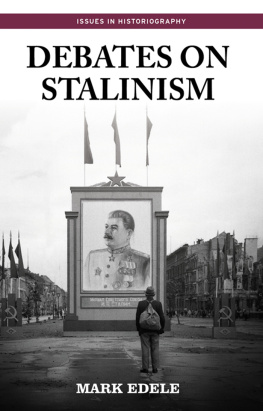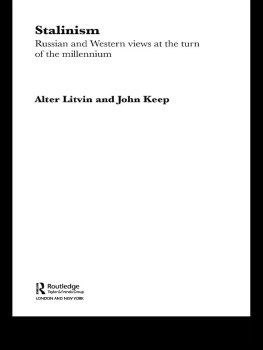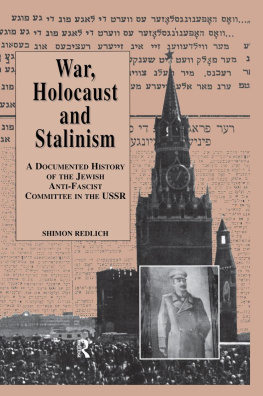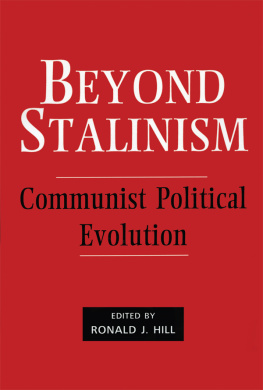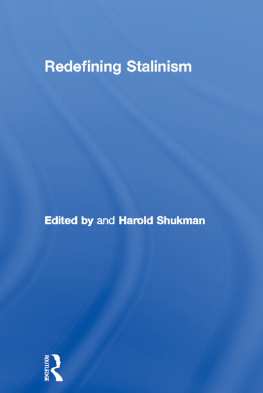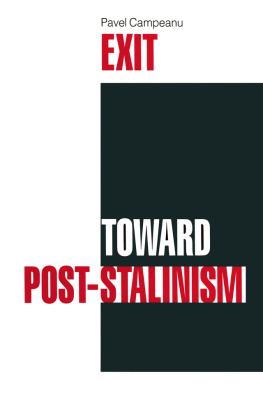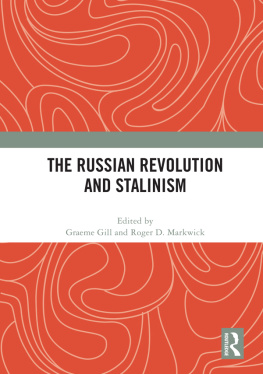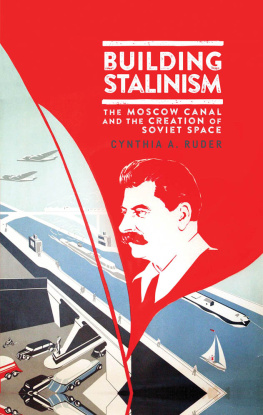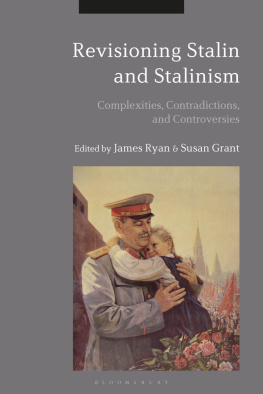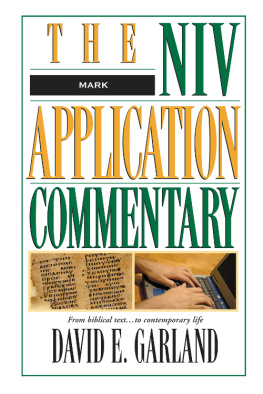Issues in Historiography
General editor
R. C. RICHARDSON
University of Winchester
Debates on Stalinism
Issues in Historiography
Already published
The Debate on the Norman Conquest
Marjorie Chibnall
The Debate on the French Revolution
Peter Davies
Debates on the Holocaust
Tom Lawson
The Debate on the English Reformation: new edition
Rosemary ODay
The Debate on the Decline of Spain
Helen Rawlings
The Debate on the English Revolution: third edition
R. C. Richardson
The Debate on the American Civil War Era
H. A. Tulloch
The Debate on the Crusades
Christopher Tyerman
The Debate on Black Civil Rights in America
Kevern Verney
The Debate on the Rise of the British Empire
Anthony Webster
Issues in Historiography
Debates on Stalinism
MARK EDELE
MANCHESTER UNIVERSITY PRESS
Copyright Mark Edele 2020
The right of Mark Edele to be identified as the author of this work has been asserted by him in accordance with the Copyright, Designs and Patents Act 1988.
Published by Manchester University Press
Altrincham Street, Manchester M1 7JA
www.manchesteruniversitypress.co.uk
British Library Cataloguing-in-Publication Data
A catalogue record for this book is available from the British Library
ISBN978 1 7849 9430 3hardback
ISBN978 1 7849 9431 0paperback
First published 2020
The publisher has no responsibility for the persistence or accuracy of URLs for any external or third-party internet websites referred to in this book, and does not guarantee that any content on such websites is, or will remain, accurate or appropriate.
Cover credit:
A German civilian looks at a large poster portrait of Stalin on the Unter-den-Linden in Berlin, 3 June 1945 No 5 Army Film & Photographic Unit, Hewitt (Sgt) Courtesy of the IWM, via Wikimedia Commons
Cover design:
Abbey Akanbi, Manchester University Press
Typeset
by New Best-set Typesetters Ltd
History without historiography is not only oversimplified and impoverished but a contradiction in terms. The study of the past cannot be divorced from a linked investigation of its practitioners and intermediaries. No historian writes in isolation from the work of his or her predecessors, nor can the commentator however clinically objective or professional stand aloof from the insistent pressures, priorities and demands of the ever-changing present, and sometimes is deliberately prevented from doing so. In truth, there are no self-contained, impregnable, academic towers. Historians are porous beings. Their writings are an extension of who they are, where they are placed, and who they speak for. Though historians address the past as their subject they always do so in ways that are shaped consciously or unconsciously as the case may be by the society, politics and systems, cultural ethos and pressing needs of their own day, and they communicate their findings in ways which are specifically intelligible and relevant to a present-minded reading public consisting initially of their own contemporaries. For these reasons the study of history is concerned most fundamentally not with dead facts and sterile, permanent verdicts, but with highly charged dialogues, disagreements, controversies and shifting centres of interest among its presenters, with the changing methodologies and discourse of the subject over time, and with audience reception. Issues in Historiography is a well-established, well-stocked series designed to explore such subject matter by means of case studies of key moments in world history and the interpretations, reinterpretations, challenges, debates and contests they have engendered.
Written by a key player in the field, Mark Edele's book takes the series into new geographical territory, as well as into what by any standards has been a historiographical battlefield. Edele bravely takes on the incredibly complex and disturbing multilayered subject of Stalin and Stalinism and locates it securely in its volatile, sometimes dangerous, political setting. Chiefly concerned with the three decades of historiography after 1980 though with many backward glances the author takes stock of historical writing produced within and outside the Soviet Union and its successor states. His subject is one that is emphatically plural in its many-sided relations with multiple national, political, ideological and temporal contexts. Changing access to sources, changing paradigms, changing fashions come under discussion, as does the adequacy of classifying historians as totalitarians, revisionists or post-revisionists. The Cold War and glasnost necessarily figure prominently in these pages. So do the many implications of the postcolonial splintering, re-formations and renationalization of component parts of the former Soviet Union. The particularly important role played in these debates by historians sometimes transplanted in America and Australia, is carefully examined. Leading contributors like Moshe Lewin (19212010) and Richard Pipes (19232018) politically contrasting Polish Jews who both escaped to the United States and Australian-born Sheila Fitzpatrick (i.e. 1941), and the heated debates in which they engaged come under extended scrutiny. Transnationalism in a number of ways both as subject matter and in terms of the background and baggage of historians themselves is a conspicuous component of Edele's analysis.
That the historiography of this field has been marked by such bitter disagreements and intense hostilities is unsurprising given the brutal, looming presence of Stalin himself and his dictatorship, his ruthlessness in disposing of individual political opponents like Trotsky, of awkward, unwanted cadres, or indeed of whole populations. Historians treatments of the Great Famine of 193233, the Great Terror of 193738, the impact of the Stalinist regime in Poland and Ukraine, are all carefully explored. So, too, is the Great Patriotic War and its historiographical legacy. More than a codicil to the Stalin story the later implementation of Putin's Memory Law makes for chilling reading.
Edele's treatment of his subject works well at both the micro and macro levels, and he succeeds admirably in placing Stalin and Stalinism in the broad sweep of Tsarist and post-1917 Revolution Russian history. Readers will find this text an incredibly helpful, well-structured, well-signposted guide, one that in its conclusion signals what might be expected to be some of the key future directions of research and writing in this teeming, controversial, and pressingly relevant field.
R. C. Richardson
July 2019
I began writing this book during my final half year at the University of Western Australia. An Australian Research Council Future Fellowship allowed me to ignore much of the turmoil which consumed the waking hours of most of my colleagues, and I taught a wonderful honours course on the topic of this book in 2017. UWA had been good to me for much of the thirteen years it employed me, but I was relieved to move on when I did. It was painful to leave behind good friends and wonderful colleagues, first among them Andrea Gaynor, Tijana Vujosevic, and the now blissfully retired Robert Stuart.





